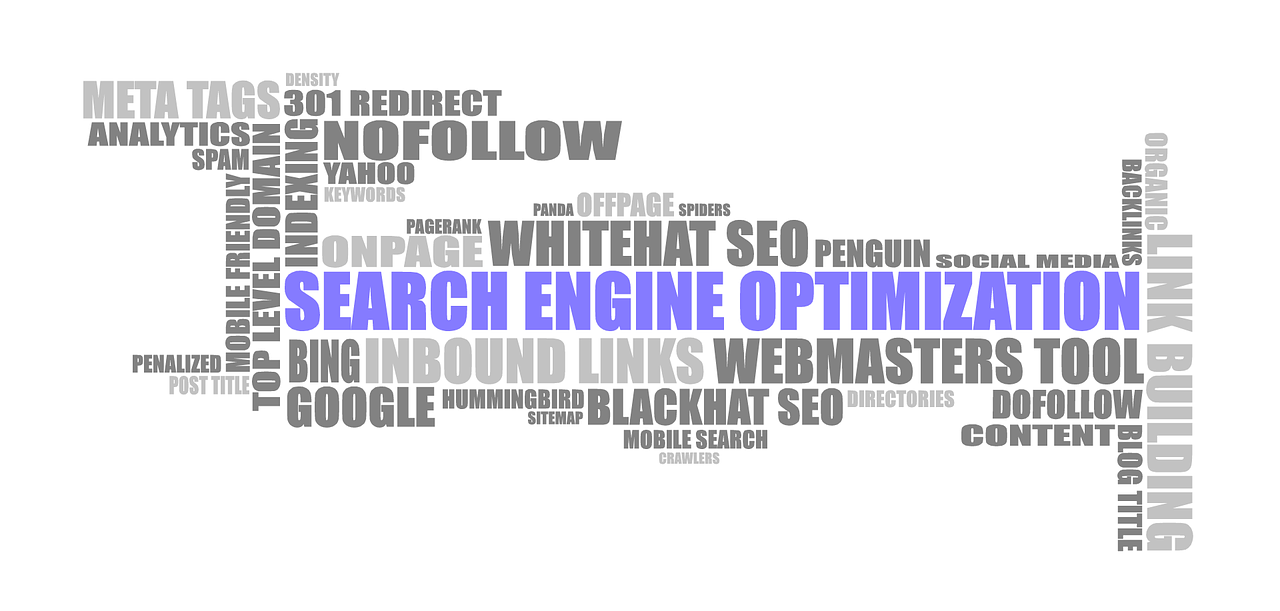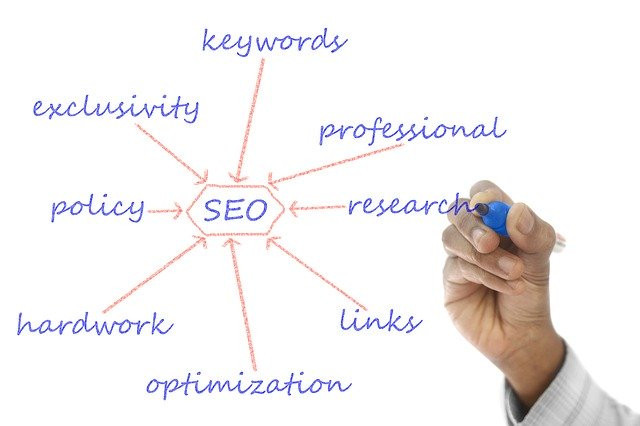We may earn money or products from the companies mentioned in this post, but this does NOT cost you anything extra! Check out my full disclaimer for more info.
Today, we will cover one of the best ways to get your website noticed online.
We will be talking about Search Engine Optimization (SEO).
If you have researched this topic, you know SEO is HUGE. Everyone has their suggestions and tips.
This post will teach you the basics of getting started and ways to grow your knowledge.

Search Engine Optimization
Just be aware that many companies have someone, or a team, to do this for their full-time jobs.
Our job is to understand the basics, write content, and get it on the first page of search engines (such as Google).
To make SEO even more complicated, algorithms (such as Google) continue to change and evolve.
In addition, best practices are constantly changing. You want to do what you can now so as not to create more work for yourself later.
For example, something you no longer want to do is “Keyword Stuffing.” Which now can severely penalize you.
So, let’s get better rankings in search engines!
One way to do this is by doing what is called on-page SEO.
On-Page SEO
Everything on your website includes all the technical stuff and the content you have.
If you recall, we already did a lot of the technical stuff. It might have seemed like a lot, but now it will start to make sense of what we did and when.
Another example of on-page SEO includes having a great user experience.
For example, it’s easy to navigate and find the information they are looking for. If you look at the technical side of things, making your permalinks look cleaner is a great thing, too (yep, we already did this in an earlier post).
Off-Page SEO
This includes everything that you do outside of your site.
The best example I can give you is to use social media to drive traffic to your site, such as creating posts that drive more traffic to your website.
You can also use off-page SEO, such as guest posts, events, and even receiving reviews from others.
Something to Stay Away From
There are ways to try and trick search engines.
I would highly suggest you stay away from these types of practices. I think it’s essential to let you know the biggest one, referred to as black hat SEO.
This is where people will do things that violate a search engine’s terms of service that increase a site or page’s rank.
Just so you know, and an easy way to remember this, the term “black hat” originated in Western movies to distinguish the “bad guys” from the “good guys” who wore white hats.

The Basics
As I mentioned, SEO’s primary goal is ranking your content as high as possible on search engines. This is done in a few different ways.
- Researching your competing
- Finding the best keywords
- Link building
Research
This can include finding who your competition is as well as keywords. But the point is that you want to find out who else is trying to rank for the same ideas and terms you are.
You can often find your competition is not researching their keywords.
That means you can create much better content for the same terms and get ranked higher than they are.
Additionally, if your content is also newer than they are, you may be posting more current information.
Keywords
A lot goes into finding the perfect keywords for your blog and posts. I’m still learning to find the best keywords, as there is a science to this.
For example, you will have difficulty ranking for the term money or business. This is because there is so much competition for those terms that it’s crazy.
On the other hand, you can find words with no competition, such as ‘the best money-making ideas for your business.’
But let’s be honest. Nobody is searching for the second term.
Finding keywords is vital because you want enough people searching for the term but not much competition (the other sites offering the same information).
Want Help Finding What Keywords To Use, Check Out Jaaxy Now!
If you want more information on finding keywords, click the link to a previous blog post I did.
To keep it simple, you can pick long-tail keywords (that have more than a few words together) because they are easier to rank for.
A bonus is that you can also rank for shorter keywords that are included in the longer ones!
It might seem a bit confusing, but continue reading. If you still have questions, let me know in the comments below, and I will reply.
If you want my suggestion, check out Jaaxy for more information on keyword research. Use the box below if you want to try a free search:
Link Building
Not to get political, but I read that links are like votes during an election. This makes it easy to understand that the more links you have, the more popular you will be.
One thing to remember is that when you are getting links, search engines look at where the links are coming from.
So, the more repeatable the backlink to your website is, the better.
Another way of saying this is DO NOT create a ton of websites to link to your blog. This is not a good practice and will not help you in any way.
How Do Search Engines Work?
That’s an excellent question, and since we are dealing with SEO, it’s essential to understand this topic.
How do search engines work
There is a very good possibility that you use Google as your search engine.
I say this because they are the most known and used to date. However, there are others, such as Bing, Yahoo, and many more.
A lot of information gets processed when you are using a search engine.
The magic happens after you type in what you want to learn more about. The search engine’s primary goal is to give users the best information for their search queries.
There are three parts to a search engine.
- Crawlers are also called spiders or bots. These are the feelers, if you will, that travel through webpage links looking for content. They search for everything from the headings, links, and, of course, the content.
- Site Indexing. Once the crawlers find a website, they put the information inside indexes. The indexes are ranked depending on how important the search engine thinks your page is. Many things go into this process, and algorithms are used, which brings us to the next section.
- Algorithms. This is where the index’s information is analyzed and tells the search engine its importance. And it does what it can based on the importance of the information to the readers. Fun fact about these: They are updated daily and have significant overhauls every few months!
So remember that it’s not just the content on the page but also how your readers consume your information.
If you have a website with fantastic information people want to read, it will appear higher in search results. Resulting in more views, and that is what we want.
Search Engine Results Page
I am adding this section here because it took a while for me to understand what it meant.
Well, honestly, you will see SERP (which stands for Search Engine Results Page). These are the results you get after searching Google, for example.
Using Google as an example, you can easily filter the information you receive from the search.
You can sort them by things such as images, flights, videos, and more. You can find this filter on the top of the page, directly under the search box.
Some other information you will get from your SERP is advertisements.
This is called PCP or pay-per-click which are ads that companies or people are paying for. Generally, these will be positioned at the top and bottom of the results pages.
What we are going for is called organic traffic. You will see these results after the ads on all searches. The highest-ranking items will be listed first, and this is what the search engine thinks will best answer the topic searched.
What Are Snippets?
Another thing you might hear thrown around is Snippet. This is a fancy way of referring to each search result.
There are three parts to a snippet that you might want to know (see image below). Remember, these are the results in the search engines.

- URL – the web address, usually in black or green
- Title – the words at the top, generally in blue
- Meta description – a brief overview of what the URL will lead you to or what the page will be about
Additional Tips
Some additional tips on getting ranked in Google and other search engines. As you know, search engines like informative articles and blogs. The main thing they are looking for is giving the reader the best content on the web.
One way to achieve this is to create content that starts with “How To” and even “Who Is” articles, for example, How To Add Content To Your Website, or Who Is xxx.
This will also help you with your writing and the content you put into the world. Also, “How To” articles are some of the most searched that I have seen.
If you want to take SEO even further, start making videos. You can upload them to services like YouTube and have links that return to your website.
Another tip I can leave you with is always have something that you want your readers to do.
This is your Call To Action, which could be many different things.
A few are getting them to sign up for your newsletter. Have them provide their email address to receive something you created for free, like leaving a comment below.

Optimizing Your Website
If you haven’t noticed, you will be tweaking your website for a while.
Noticing that you are improving your rankings in search engines will be awesome, and that is when you will start to see everything coming full circle.
A lot goes into SEO and how to index your website and content.
This was meant to be an overview of SEO and ways to improve yours. And this is a fun fact for you if there is a specific SEO question that you have, Google it.
You would be surprised how much information is out there.
If you have any further questions about SEO, as I tried to make this brief but informative, leave me a comment below. If you want me to elaborate on anything, I would be more than happy to.

